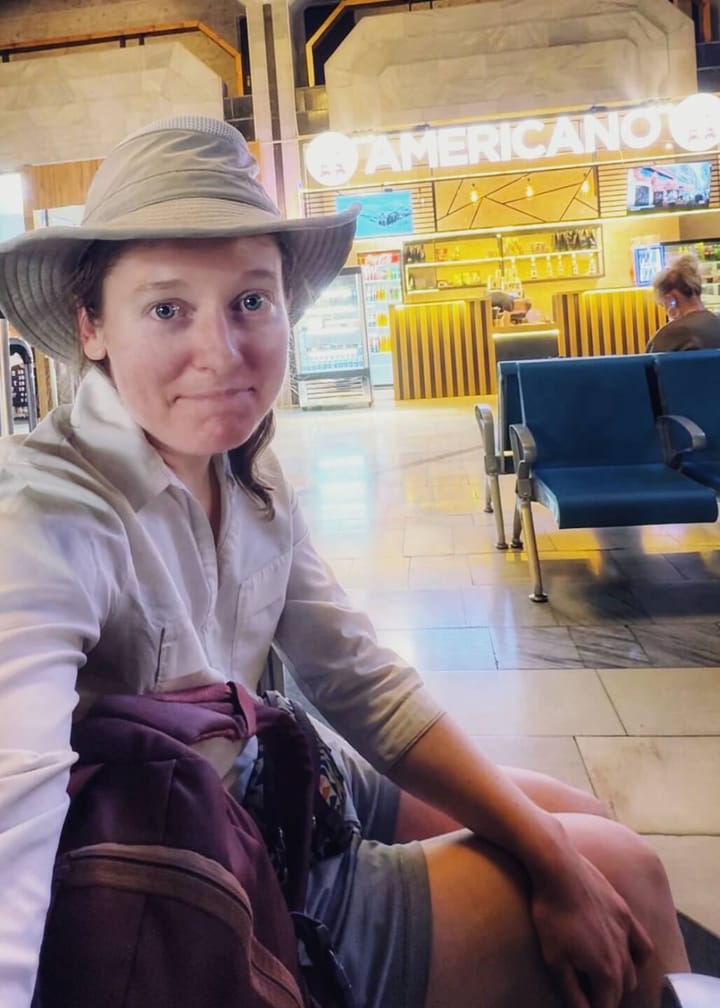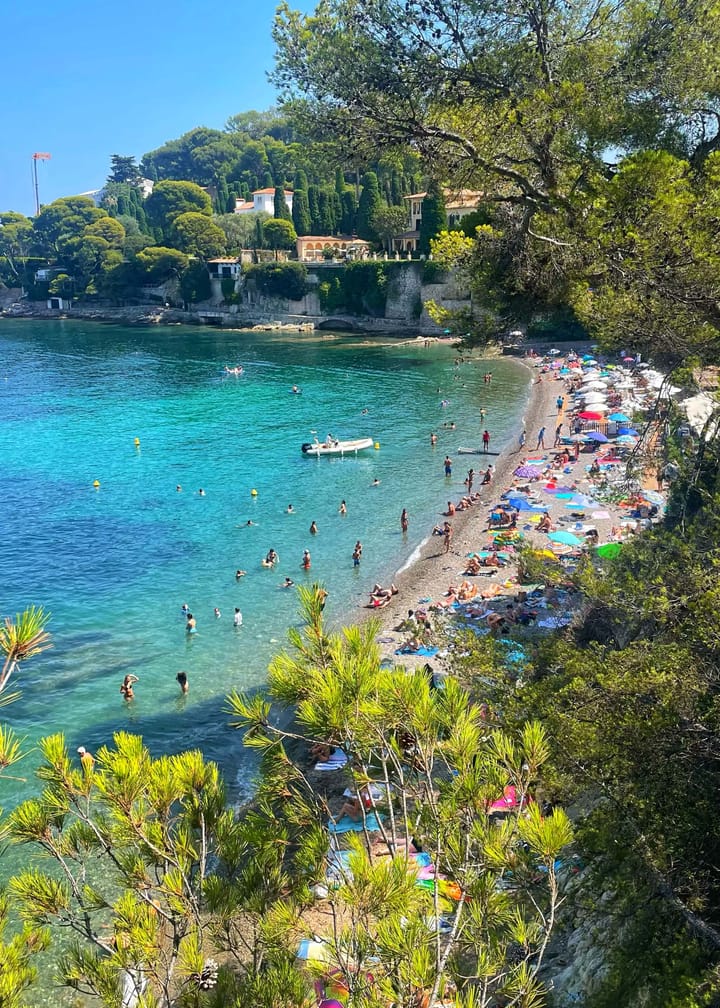“Where are you from?”
I dread this question, detest it, even despise the person asking it – despite the fact that I get asked this question somewhere between two and seven times daily while I am traveling. The taxi driver, the waitress at the restaurant, the barista making coffee, the person standing next to me in line, the diner at the next table who catches my eye, despite how hard I try not to look, desperate to not have the conversation that will inevitably follow their prying query.
“The U.S.,” I mumble.
Every once in a while I am spared from what normally comes next. Either my interrogator’s education is insufficient – they only understand “America” – or they mishear me, thinking I said “U.K.” and their piqued interest evaporates and I am free.
But the rest of the time, most people make the connection and light up as if I've just said I was from heaven.
“Oooooh! America! I want to go to America!”
And I dream that I am an ostrich burying its head into the sand to escape the nightmare that I am living in like Groundhog Day. I am exhausted from representing “America.” I did not sign up for this.
I did not know that my passport came with the weight of everyone’s expectations, assumptions, dreams, and obsessions about the country I was born in.
I have been conscripted into being the unpaid intern of the Ambassadors of America.
Our nationality is American, but we are from the United States — not "America." "America" refers to two continents, not one country. South Americans are also from "America" — and anyone who has spent time with them knows how much it bothers them to be erased when the term is used to refer to only one country. In fairness, other than Trump and MAGA, it does seem that most Americans abroad do say that they are from the United States – it's Europe, Africa, and Asia that can't seem to get it right. I'm not entirely sure why this is. It does actually bother me quite a bit. (Perhaps more than South Americans.)
My head is yanked out out of the sand as I am subject to a monologue about the person’s experiences with “America” – which usually involve knowing someone who went once – along with everything they have learned about “America” from Hollywood, and how amazing their life would be if they could only get to “America.”
“Well, actually, you might make more money but you're going to spend more money too. It is quite expensive in the United States,” I correct. “And quite racist and anti-immigrant. I hope if you ever make it there, it doesn’t disappoint you.”
I am doing everything I can to be fired from this internship, truly. But my accent is like an invisible prison uniform that I can’t shed – and orange is not my color.
I speak enough Spanish to pretend to non-Spanish speakers that I am from Spain. My cab driver in Uzbekistan responded by putting this song on the stereo. 🔊🤦♀️ (I deserved this outcome.)
I know that I should make peace with this question. It is coming whether I want it to or not. But something inside of me won’t let go of the injustice of it all. No other Western country gets this response. Not France, not Switzerland, not Australia. And the idea that the United States is the land of wealth? Also a myth. The U.S. dollar isn’t the strongest currency. It’s not even in the top three. But when you’re traveling, there’s a local price, a tourist price, and an American price – and I’m tired of paying the “America” tax.
Just like we are obligated to pay taxes no matter where we live in the world, we are obligated to listen to the propaganda we shoved down everyone’s throats by virtue of our cultural, economic, military, and diplomatic power in the world.
And though I could monologue right back at the person across from me about all of the ways in which they are wrong about my country, I think that the anger, resentment and injustice I feel is misplaced on this person, whose only crime, really, is believing that the grass is greener somewhere else.
In fact, what I am angry about is that the United States has sold them – and me – a bill of goods.
I’m not mad at the person, I’m mad at my country for not living up to its promises.
I dread this conversation because to hear the American Dream parroted back to me is a reminder of everything that it isn’t, at least for my generation – and it should be.
If I could write a letter to the editor, it'd go something like this. Dear America, you pretend to be the land of opportunity, but only for some. Get rich or die getting others rich? Of course I don’t feel pride or patriotism. I don’t even feel American. I feel human – and I feel robbed of the experience.
"I have a dream" – but this is a nightmare.
And that’s what it is, really. It is that my nationality does not identify me, I do not identify with my nationality, and I’d much rather have a conversation about who we are as human beings than where we come from.
“Where are you from?” is a bid for connection that leaves me feeling more disconnected.
When someone asks me where I am from, what I really want to say is this:
“I am a human being, a citizen of earth. I was born in a place, but I am not from a place. I am from the books I have read, the experiences I have felt, and the people I have encountered along the way. You will learn more about me if you ask me about my life than my place of birth. And so, instead of asking you where you are from, I will ask you: Who are you, and what matters to you?”
None of us are the places we are from – or our genders, our sexual orientations, or even our names. These are labels used to divide us, not unify us, and the only way out of this mess we’ve made – and I’m not just talking about “America” here – is to recognize that molecularly we are all the same, that our desire to control and “other” is the root of all suffering, and if we are ever to heal ourselves and our planet, we must see beyond these labels to our interconnectedness as beings sharing the one ecosystem we’ve got.
I am from awe, and anguish, and the aching hope that we can do better.
I am from the stories I carry, not the lines on a map.
And I’m tired of this American angst.



